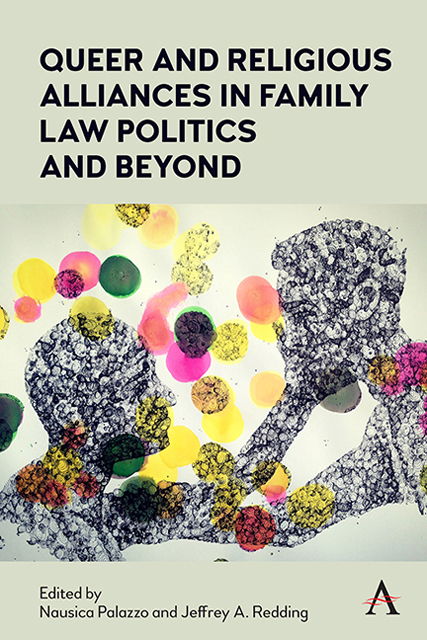Chapter 4 - A Multiplication of Blessings: Families and LGBTQ Rights within the Waldensian Church
Published online by Cambridge University Press: 09 December 2022
Summary
Religious minorities can play a role in the recognition of equal rights for samesex couples and in affirming the equal dignity of families. Typical accounts of the relationship between religious groups and sexual minorities, such as lesbian, gay, bisexual, transgender, and queer (LGBTQ) people or women, describe a different story. They report that religious communities oppose progressive reforms, especially with regard to gender roles and LGBTQ rights. This chapter discusses certain religious communities defying this view. Examples include some churches of Reformed Protestantism. More specifically, they concern the Waldensian Church, a historical denomination that today survives only in Italy and in some regions of Argentina and Uruguay.
I would like to start by offering a roadmap. The first section addresses the potential role that religious minorities might have in promoting progressive views of gender and LGBTQ rights. Notably, it argues that they might have a privileged perspective when it comes to creating alliances with these sexual minorities. The chapter then offers an overview of the Waldensian Church and its history. It then focuses on the debate about gender and LGBTQ rights within the Waldensian church and on the distinctive meaning of family within the Waldensian Church. It argues that this distinctive meaning has streamlined reforms within the Church that were beneficial to nontraditional families. The concluding section offers reflections on new directions, and, more generally, the future of similar alliances with sexual minorities.
The Privileged Perspective of Religious Minorities
Observing the world through the lens of a social minority offers a unique perspective. The condition of being a minority generally implies a request for special protection or particular statuses. But the existence of minorities also has also implications for other groups: the minority factor has an innovative and disruptive power in its challenging the certainties of a dominant majority. When these two aspects occur in tandem societies experience the power of what, in philosophical and political terms, Jacques Maritain defined as “prophetic shock minorities.” By the term, he refers to “small dynamics groups freely organized and multiple in nature, which would not be concerned with electoral success but with devoting themselves entirely to great social and political ideas and which would act as a ferment either inside or outside the political parties.”
- Type
- Chapter
- Information
- Publisher: Anthem PressPrint publication year: 2022

